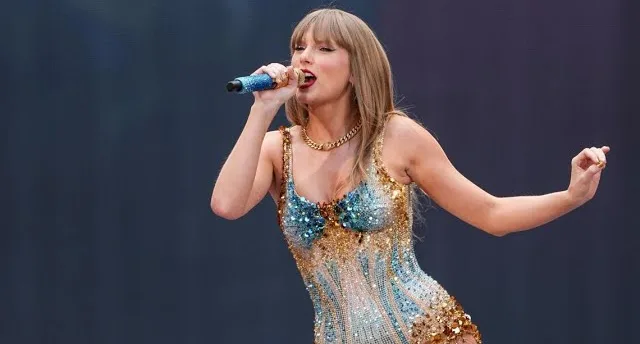Taylor Swift opens up about the emotional impact of cancelling her Vienna shows due to an alleged terror plot and expresses gratitude for the overwhelming support during her London performances.
Taylor Swift has shared her thoughts on the “devastating” decision to cancel her scheduled concerts in Vienna, Austrian after an alleged terror plot led to heightened security concerns. The cancellations, which occurred less than two weeks before her final shows in London, marked a challenging moment in the singer’s ongoing Eras Tour.
The pop icon expressed her deep sense of guilt and fear over the decision, acknowledging the disappointment of fans who had eagerly anticipated the Austrian performances. In a heartfelt Instagram post, Swift revealed that the gravity of the situation left her with “a new sense of fear” and a “tremendous amount of guilt” for those affected by the abrupt change in plans.
Despite the heartbreak of cancelling the Vienna shows, Swift expressed profound gratitude towards the Austrian authorities for their swift and decisive actions. She emphasized that thanks to their efforts, her team and fans were “grieving concerts and not lives,” underscoring the seriousness of the threat that led to the cancellations.
Swift’s emotional journey continued as she took the stage in London, where she performed five sold-out shows at Wembley Stadium. Describing the experience as a “rollercoaster of emotions,” the singer praised the London audiences for their overwhelming support and love. The response from her fans, whom she likened to a “giant bear hug,” helped her find solace and strength in the wake of the Vienna cancellations.
In her post, Swift also highlighted the importance of prioritizing the safety of her fans during the London shows. She expressed her appreciation for the collaboration between her team, stadium staff, and local authorities, all of whom worked tirelessly to ensure the safety of nearly half a million concertgoers.
Swift concluded her message with a reflection on the power of restraint and timing, particularly when it comes to addressing sensitive issues. She explained that her decision to remain silent about the Vienna situation until after the European leg of her tour was rooted in a desire to avoid provoking potential threats. Her focus, she said, was on finishing the tour safely—a goal she achieved with great relief and gratitude.
Analysis:
Political:
The cancellation of Taylor Swift’s Vienna concerts due to an alleged terror plot highlights the intersection of entertainment and security in a politically charged environment. In recent years, high-profile events have increasingly become potential targets for terrorism, necessitating a robust response from law enforcement agencies. The swift action taken by Austrian authorities underscores the importance of intelligence and collaboration in preventing potential attacks. Swift’s acknowledgement of these efforts reflects a broader understanding of the political and security challenges that accompany global events, particularly in a world where public figures can become focal points for political violence.
Social:
The incident also speaks to the social dynamics at play in large-scale events, where the safety of fans becomes paramount. Swift’s deep sense of responsibility towards her audience highlights the evolving role of artists as protectors and advocates for their communities. The overwhelming support she received in London suggests a strong bond between Swift and her fans, one that is built on mutual respect and shared values. This connection is particularly poignant in an age where social media allows for real-time communication and collective action, enabling artists to address issues directly with their fan base.
Racial:
While the Vienna incident does not explicitly touch on racial issues, the broader context of terrorism and security often intersects with race and ethnicity. Public discourse around terror threats can sometimes reinforce stereotypes or lead to racial profiling, making it essential for public figures to navigate these topics with sensitivity. Swift’s measured response, focusing on safety without diving into potentially divisive rhetoric, demonstrates a careful approach that avoids inflaming racial tensions while still addressing the core issue of fan protection.
Gender:
As a female artist with a massive global following, Taylor Swift’s experience in Vienna and London underscores the unique challenges faced by women in the public eye. Female entertainers often bear the dual burden of being both performers and protectors, particularly in environments where their safety, as well as that of their fans, can be compromised. Swift’s response to the Vienna situation—balancing vulnerability with strength—offers a glimpse into the pressures faced by women in leadership roles, especially in industries traditionally dominated by men.
Economical:
The cancellation of three shows in Vienna likely had significant economic implications, not only for Swift and her team but also for the local economy. Concerts of this scale bring in substantial revenue through ticket sales, merchandise, and tourism, and their cancellation can have a ripple effect on businesses and workers who rely on such events for income. The quick decision to prioritize safety over profits reflects an ethical stance that values human life over economic gain. However, it also raises questions about the financial resilience of the entertainment industry in the face of unpredictable security threats.
